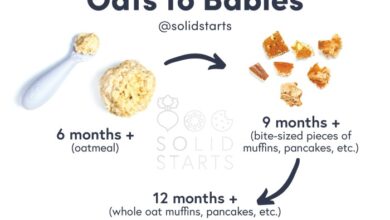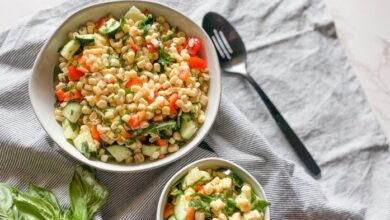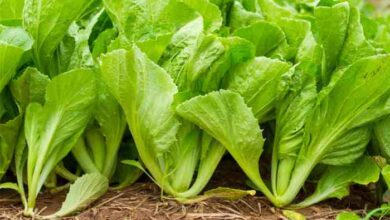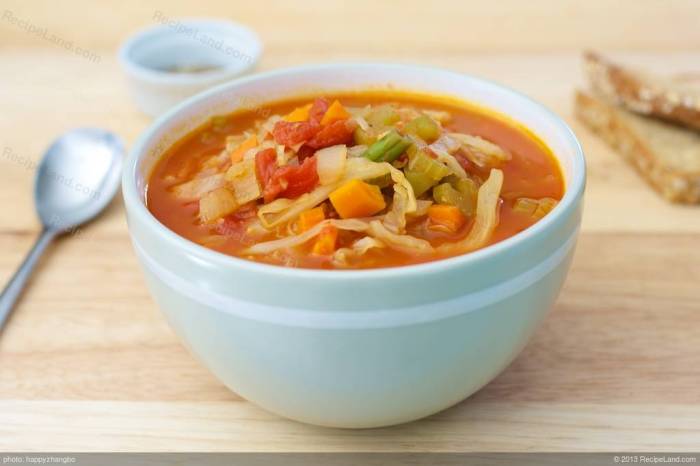
Cabbage Fat Burning Soup: Does It Work?
Cabbage fat burning soup, a popular weight-loss trend, has been making headlines for its purported ability to help people shed pounds quickly. But is it all hype, or is there real science behind the soup’s supposed fat-burning magic? Let’s delve into the world of cabbage soup diets, exploring its history, potential benefits, risks, and ultimately, whether it can truly help you achieve your weight loss goals.
The concept of a cabbage soup diet is simple: you consume a specific amount of cabbage soup throughout the day, often paired with limited portions of other foods. Proponents tout its effectiveness due to cabbage’s low calorie content and its ability to promote satiety.
However, the science behind this claim is complex, and it’s crucial to understand the potential downsides of such a restrictive diet before jumping on the bandwagon.
The Cabbage Soup Diet
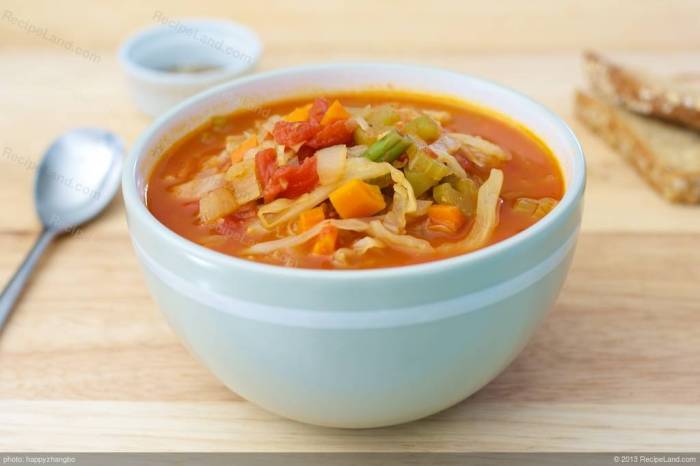


The cabbage soup diet is a short-term weight loss plan that involves consuming large amounts of cabbage soup, along with a limited selection of other foods. It has been a popular fad diet for decades, promising rapid weight loss. While it can lead to initial weight loss, it’s not a sustainable or healthy long-term solution.
The History and Origins of the Cabbage Soup Diet
The exact origins of the cabbage soup diet are unclear. It’s often attributed to a 1980s American diet book, but its roots likely extend further back. It has gained popularity through word-of-mouth and online sharing, becoming a common, albeit controversial, weight loss method.
Variations of the Cabbage Soup Diet
There are several variations of the cabbage soup diet, each with its own specific rules and food restrictions. Some versions allow only cabbage soup and specific fruits or vegetables for a few days, while others include additional protein sources. The most common version restricts the diet to cabbage soup for seven days, with limited portions of other foods on certain days.
The Typical Menu Plan for a Cabbage Soup Diet
The typical cabbage soup diet menu plan involves consuming unlimited amounts of a specific cabbage soup recipe throughout the week. The soup is typically made with cabbage, onions, celery, carrots, and green peppers. The diet also allows for a limited amount of other foods, such as:
- Day 1:Fruits (except bananas)
- Day 2:Vegetables (except corn and peas)
- Day 3:Fruits and vegetables
- Day 4:Bananas and skim milk
- Day 5:Beef and tomatoes
- Day 6:Beef and vegetables
- Day 7:Brown rice and vegetables
The Nutritional Content and Potential Benefits of the Cabbage Soup Diet
Cabbage soup is a low-calorie food, primarily due to the high water content and low fat content of cabbage. The diet’s focus on vegetables and fruits provides some essential vitamins and minerals. However, the limited food options and low calorie intake can lead to nutrient deficiencies and other health problems.
Potential Benefits:
- Rapid Weight Loss:The low calorie intake of the cabbage soup diet can lead to significant weight loss in the short term. However, this weight loss is primarily due to water loss and muscle mass, not fat loss.
- Increased Fiber Intake:The high fiber content of cabbage can promote digestive health and regularity.
Potential Risks:
- Nutrient Deficiencies:The limited food options on the cabbage soup diet can lead to deficiencies in essential vitamins and minerals, such as iron, calcium, and vitamin D.
- Muscle Loss:The low calorie intake and lack of protein can lead to muscle loss, which can negatively impact metabolism and overall health.
- Dehydration:The high water content of the cabbage soup diet can lead to dehydration, especially if not accompanied by adequate water intake.
- Gastrointestinal Issues:The high fiber content of cabbage can cause bloating, gas, and other digestive discomfort.
- Unsustainable Weight Loss:The cabbage soup diet is not a sustainable long-term solution for weight loss. Once the diet is over, individuals often regain the weight they lost.
Potential Health Benefits of Cabbage Soup
Cabbage soup, a popular staple in many cultures, is not only a delicious and versatile dish but also boasts a range of potential health benefits. Packed with essential nutrients and low in calories, cabbage soup can be a valuable addition to a healthy diet.
Key Nutrients and Their Health Benefits
Cabbage is an excellent source of various vitamins, minerals, and antioxidants that contribute to overall well-being. Here are some of the key nutrients found in cabbage and their potential health benefits:
- Vitamin C:A powerful antioxidant that supports immune function, collagen production, and wound healing.
- Vitamin K:Essential for blood clotting and bone health.
- Fiber:Promotes digestive health, helps regulate blood sugar levels, and contributes to satiety.
- Sulforaphane:A potent antioxidant with anti-inflammatory and anti-cancer properties.
- Potassium:An essential mineral that helps regulate blood pressure and muscle function.
Cabbage Soup and Satiety
Cabbage is a low-calorie, high-fiber food, which makes it an excellent choice for promoting satiety and reducing calorie intake. The fiber content in cabbage absorbs water in the digestive tract, creating a feeling of fullness and delaying the absorption of sugars, leading to a more stable blood sugar level.
Research Findings on Cabbage Soup and Weight Loss
While there is no scientific consensus on the effectiveness of cabbage soup diets for long-term weight loss, some studies have suggested that cabbage soup may contribute to short-term weight reduction.
“A small study published in the Journal of the American College of Nutrition found that participants who consumed a cabbage soup diet for one week lost an average of 4.5 pounds.”
However, it is important to note that these studies are limited and do not provide conclusive evidence. Long-term weight loss requires a balanced diet and regular exercise.
Cabbage Soup for Digestive Health
The high fiber content in cabbage promotes digestive health by adding bulk to stools, which helps prevent constipation. Additionally, the sulfur compounds in cabbage may have a protective effect against certain digestive disorders.
Understanding the Science Behind Fat Burning: Cabbage Fat Burning Soup
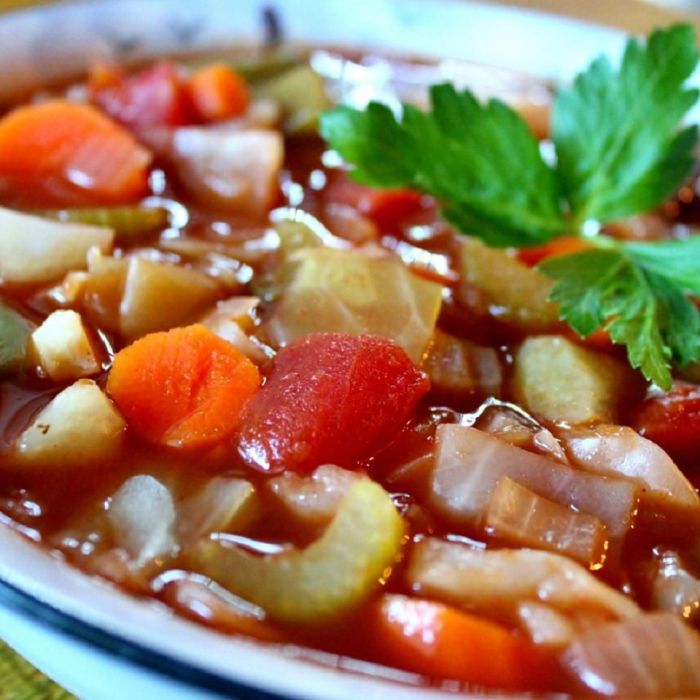
Fat burning is a complex process that involves the breakdown of stored fat for energy. To understand how fat burning works, we need to delve into the basic principles of calorie expenditure and the role of metabolism in weight management.
Calorie Expenditure and Fat Burning
Calorie expenditure refers to the number of calories your body burns through various activities, including resting, exercising, and digesting food. When you consume more calories than you burn, your body stores the excess energy as fat. Conversely, when you burn more calories than you consume, your body taps into stored fat for energy, leading to weight loss.
Metabolism and Weight Management, Cabbage fat burning soup
Metabolism is the sum of all chemical processes that occur within your body to maintain life. It plays a crucial role in weight management by influencing how efficiently your body burns calories. A faster metabolism means your body burns more calories at rest, making it easier to lose weight.
Conversely, a slower metabolism can make it harder to shed pounds.
Factors Influencing Fat Burning
Several factors can influence how efficiently your body burns fat, including:
- Exercise: Regular physical activity is essential for boosting metabolism and burning calories. Engaging in a variety of exercises, including cardio and strength training, can help you increase your calorie expenditure and promote fat burning.
- Diet: The foods you eat play a significant role in your metabolism and fat burning. A balanced diet rich in lean protein, fruits, vegetables, and whole grains can help you maintain a healthy weight and promote fat burning. Conversely, consuming processed foods, sugary drinks, and excessive amounts of saturated and unhealthy fats can slow down your metabolism and hinder fat burning.
- Genetics: Your genes can influence your metabolism and body composition. Some individuals may be genetically predisposed to a faster metabolism, making it easier for them to burn calories and lose weight. However, even with a slower metabolism, you can still achieve your weight goals by making healthy lifestyle choices.
Cabbage Soup and Fat Burning
While cabbage soup alone cannot magically melt away fat, it can play a role in supporting a healthy diet and promoting fat burning. Cabbage is a low-calorie, nutrient-rich vegetable that is rich in fiber and antioxidants.
The fiber in cabbage can help you feel fuller for longer, reducing your overall calorie intake.
Furthermore, the antioxidants in cabbage may help boost your metabolism and support healthy weight management. However, it’s important to note that relying solely on cabbage soup for weight loss is not sustainable or healthy. It’s crucial to combine a balanced diet with regular exercise for optimal results.
The Cabbage Soup Diet



While the cabbage soup diet promises rapid weight loss, it’s crucial to understand its potential risks and considerations before embarking on this restrictive approach.
Potential Risks of Restrictive Diets
Restrictive diets, like the cabbage soup diet, can pose several health risks, primarily due to their limited nutritional content.
- Nutrient Deficiencies:By drastically limiting food choices, restrictive diets can lead to deficiencies in essential vitamins, minerals, and other nutrients. This can result in fatigue, weakness, hair loss, and other health problems. For example, the cabbage soup diet is deficient in protein, iron, and healthy fats, which are crucial for overall health and well-being.
- Metabolic Slowdown:Restrictive diets often lead to a decrease in metabolism, making it harder to lose weight in the long run. When the body is deprived of essential nutrients, it enters a “starvation mode,” slowing down its metabolic rate to conserve energy.
This can result in weight gain once the diet is over.
- Muscle Loss:Without sufficient protein intake, the body may start breaking down muscle tissue for energy, leading to muscle loss and weakness. This can impact physical performance, energy levels, and overall health.
- Digestive Issues:The high fiber content in cabbage can cause digestive discomfort, such as bloating, gas, and diarrhea, especially when consumed in large quantities.
The Importance of Consulting a Healthcare Professional
Before starting any new diet, it’s essential to consult a healthcare professional, such as a registered dietitian or a doctor. They can assess your individual needs, identify potential risks, and provide personalized guidance. They can help you develop a safe and effective weight loss plan that addresses your specific health conditions and dietary requirements.
Potential Side Effects of the Cabbage Soup Diet
While the cabbage soup diet may lead to initial weight loss, it’s not a sustainable or healthy approach in the long run. The following are some potential side effects:
- Digestive Discomfort:As mentioned earlier, the high fiber content in cabbage can cause digestive issues, such as bloating, gas, and diarrhea, especially when consumed in large quantities.
- Nutrient Deficiencies:The restrictive nature of the diet can lead to deficiencies in essential vitamins, minerals, and other nutrients, which can result in fatigue, weakness, hair loss, and other health problems.
- Muscle Loss:The lack of protein in the diet can lead to muscle breakdown for energy, resulting in muscle loss and weakness.
- Headaches and Dizziness:The sudden reduction in calorie intake can cause headaches and dizziness due to low blood sugar levels.
Guidelines for Incorporating the Cabbage Soup Diet Safely and Effectively
If you’re considering the cabbage soup diet, it’s essential to do so cautiously and under the guidance of a healthcare professional. Here are some guidelines for incorporating it safely and effectively:
- Limit the Duration:The cabbage soup diet is intended for short-term use, typically for a few days. Prolonged use can lead to nutrient deficiencies and other health problems.
- Supplement with Nutrient-Rich Foods:To avoid nutrient deficiencies, supplement the diet with other nutrient-rich foods, such as fruits, vegetables, lean protein, and whole grains, in moderation.
- Stay Hydrated:Drink plenty of water throughout the day to prevent dehydration, which can exacerbate digestive discomfort.
- Listen to Your Body:Pay attention to your body’s signals and stop the diet if you experience any adverse effects, such as digestive issues, fatigue, or dizziness.
Sustainable Weight Loss Strategies
The Cabbage Soup Diet, while potentially offering short-term weight loss, isn’t a sustainable solution for long-term health and well-being. It’s crucial to adopt a balanced and sustainable approach to weight loss that focuses on healthy habits and lifestyle changes. This approach promotes gradual, healthy weight loss while supporting your overall health and preventing weight regain.
Incorporating Healthy Eating Habits
Adopting healthy eating habits is a cornerstone of sustainable weight loss. It’s not about restrictive diets but about making gradual changes that you can maintain over time.
- Focus on whole, unprocessed foods:Prioritize fruits, vegetables, lean protein, whole grains, and healthy fats. These foods are nutrient-rich and provide lasting energy, helping you feel full and satisfied.
- Limit processed foods, sugary drinks, and unhealthy fats:These foods are often high in calories and low in nutrients, contributing to weight gain and health problems.
- Cook more meals at home:This gives you control over ingredients and portion sizes.
- Practice mindful eating:Pay attention to your hunger and fullness cues, eating slowly and savoring each bite.
- Hydrate adequately:Water helps you feel full, boosts metabolism, and aids in digestion. Aim for 8 glasses of water daily.
Managing Portion Sizes
Controlling portion sizes is vital for weight management.
- Use smaller plates:This can help you visually perceive smaller portions.
- Measure your food:Using measuring cups and spoons can help you understand serving sizes.
- Eat slowly:This allows your body time to register fullness, preventing overeating.
- Avoid mindless snacking:Snack only when truly hungry, choosing healthy options.
Making Healthier Food Choices
Making healthier food choices is key to achieving sustainable weight loss.
- Choose lean protein sources:Opt for fish, chicken, beans, lentils, and tofu over red meat and processed meats.
- Select whole grains over refined grains:Look for whole-wheat bread, brown rice, quinoa, and oats.
- Incorporate healthy fats:Include avocados, nuts, seeds, and olive oil in your diet.
- Limit saturated and trans fats:These fats can increase cholesterol levels and raise the risk of heart disease.
- Read food labels carefully:Pay attention to serving sizes, calories, and nutrient content.
Regular Physical Activity
Regular physical activity plays a crucial role in weight loss and overall health.
- Aim for at least 150 minutes of moderate-intensity aerobic activity or 75 minutes of vigorous-intensity aerobic activity per week:This can include brisk walking, jogging, swimming, cycling, or dancing.
- Incorporate strength training exercises:Strength training helps build muscle mass, which boosts metabolism and burns more calories at rest.
- Find activities you enjoy:This increases the likelihood of sticking with your exercise routine.
- Make physical activity a part of your daily routine:Take the stairs, walk or bike to work, or join a fitness class.
Recipes and Variations for Cabbage Soup

The beauty of cabbage soup lies in its versatility. You can easily customize it to suit your preferences and dietary needs. Here, we will explore various recipes, provide a step-by-step guide for a basic version, and offer tips for incorporating different ingredients.
Cabbage Soup Recipes
This section presents a collection of cabbage soup recipes, each offering a unique flavor profile.
| Recipe Name | Ingredients | Preparation |
|---|---|---|
| Classic Cabbage Soup |
|
|
| Spicy Cabbage Soup |
|
|
| Cabbage and Lentil Soup |
|
|
Step-by-Step Guide for Basic Cabbage Soup
This section provides a detailed step-by-step guide for preparing a basic cabbage soup recipe.
- Gather your ingredients:You will need 1 head of cabbage, 2 onions, 2 carrots, 2 celery stalks, 4 cups of vegetable broth, salt, and pepper.
- Chop the vegetables:Chop the cabbage, onions, carrots, and celery into bite-sized pieces.
- Sauté the vegetables:In a large pot, heat olive oil over medium heat. Add the chopped onions and carrots and sauté until softened, about 5 minutes.
- Add the remaining ingredients:Add the chopped celery and cabbage to the pot. Pour in the vegetable broth. Bring the mixture to a boil, then reduce heat and simmer for 30 minutes, or until the vegetables are tender.
- Season and serve:Season the soup with salt and pepper to taste. Serve hot.
Customizing Cabbage Soup Recipes
This section discusses tips for customizing cabbage soup recipes.
- Add different vegetables:Experiment with other vegetables like zucchini, bell peppers, mushrooms, or spinach.
- Incorporate spices:Enhance the flavor with spices like garlic powder, paprika, cumin, or turmeric.
- Use different broths:For a richer flavor, use chicken broth or beef broth instead of vegetable broth.
- Add protein:Incorporate protein sources like cooked chicken, beans, or lentils for a more filling meal.
- Adjust the consistency:If you prefer a thicker soup, you can blend a portion of it or add a cornstarch slurry.
Incorporating Different Vegetables and Spices
This section demonstrates how to incorporate different vegetables and spices into cabbage soup.
- For a Mediterranean twist:Add diced tomatoes, Kalamata olives, and oregano to the soup.
- For a Thai-inspired flavor:Include chopped ginger, lemongrass, and red curry paste.
- For a hearty and comforting soup:Add cooked ground beef or sausage, diced potatoes, and a sprinkle of smoked paprika.
The Cabbage Soup Diet



The Cabbage Soup Diet, while potentially effective for short-term weight loss, is often criticized for its restrictive nature and lack of long-term sustainability. To achieve lasting weight management and overall well-being, it’s crucial to adopt a holistic approach that encompasses both dietary changes and lifestyle modifications.
Lifestyle Factors and Their Importance
Adopting a holistic approach to weight management involves addressing various lifestyle factors that can significantly influence your health and well-being. These factors, in conjunction with dietary adjustments, play a crucial role in promoting sustainable weight loss and maintaining a healthy lifestyle.
- Stress Management:Chronic stress can lead to hormonal imbalances, increased cortisol levels, and cravings for unhealthy foods. Implementing stress management techniques such as mindfulness meditation, yoga, deep breathing exercises, or spending time in nature can help reduce stress levels and promote overall well-being.
- Sleep Quality:Adequate sleep is essential for hormonal regulation, appetite control, and overall health. Aim for 7-9 hours of quality sleep each night. Establish a consistent sleep schedule, create a relaxing bedtime routine, and ensure a dark, quiet, and cool sleep environment.
- Regular Physical Activity:Incorporating regular physical activity into your routine can help burn calories, improve cardiovascular health, and boost mood. Aim for at least 150 minutes of moderate-intensity aerobic activity or 75 minutes of vigorous-intensity aerobic activity per week.
- Mindful Eating:Paying attention to your eating habits and making conscious choices about what and how you eat can promote healthy eating patterns. Practice mindful eating by focusing on your food, savoring flavors, and eating slowly. Avoid distractions like television or phones while eating.
Seeking Support from Healthcare Professionals
Consulting with healthcare professionals, such as registered dietitians, can provide personalized guidance and support for your weight management journey. They can help you develop a safe and effective weight loss plan that considers your individual needs, medical history, and preferences.
Registered dietitians can also provide evidence-based information on nutrition, help you identify and address potential nutritional deficiencies, and guide you towards sustainable lifestyle changes.



